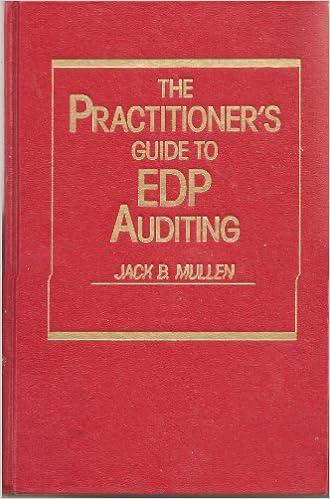Question
Company Z had the following transactions in its first year of operations: (1) On January 15, purchased 5,000 units of inventory for $20 each (2)
Company Z had the following transactions in its first year of operations:
(1) On January 15, purchased 5,000 units of inventory for $20 each
(2) On March 1, purchased 10,000 units of inventory for $22 each
(3) On March 30, sold 7,000 units of inventory for $48 each
(4) On June 20, purchased 9,000 units of inventory for $25 each
(5) On August 10, sold 12,000 units of inventory for $50 each
(6) On September 3, sold 1,000 units of inventory $49 each Company Z records transactions using a perpetual system.
Calculate the cost of goods sold and ending inventory using (1) average cost, (2) FIFO, and (3) LIFO. Company Z asks you to advise them on which inventory method to use. What method would you choose if the company wants to take out a loan from a bank in the near future that requires the company to meet a large threshold for its current assets value? What method would you choose if the company has a near-term investment opportunity that requires more cash on hand? Explain your answers.
Step by Step Solution
There are 3 Steps involved in it
Step: 1

Get Instant Access to Expert-Tailored Solutions
See step-by-step solutions with expert insights and AI powered tools for academic success
Step: 2

Step: 3

Ace Your Homework with AI
Get the answers you need in no time with our AI-driven, step-by-step assistance
Get Started


